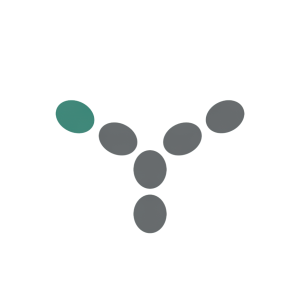Welcome to our dedicated page for Genmab news (Ticker: GMAB), a resource for investors and traders seeking the latest updates and insights on Genmab stock.
Genmab A/S (GMAB) is a global biotechnology leader focused on creating differentiated antibody therapies for cancer and autoimmune diseases. This page serves as the definitive source for Genmab news, providing investors and industry professionals with timely updates on clinical developments, regulatory milestones, and strategic partnerships.
Access consolidated information on FDA approvals, collaboration announcements, and clinical trial results across Genmab's pipeline. The company's proprietary platforms like DuoBody and HexaBody underpin its innovative treatments, with key alliances including Johnson & Johnson and AbbVie driving therapeutic advancements.
Bookmark this page for real-time updates on Genmab's progress in antibody engineering and commercialization efforts. Monitor critical updates through verified press releases while gaining insights into how the company addresses complex medical challenges through targeted biologics.
Genmab (Nasdaq: GMAB) announced it will discontinue clinical development of acasunlimab following a portfolio prioritization decision on December 29, 2025. The company said the move reflects a focus on its highest‑impact late‑stage programs, specifically EPKINLY (epcoritamab), petosemtamab and Rina‑S (rinatabart sesutecan). Genmab described the acasunlimab clinical profile as "encouraging" but elected to reallocate resources to what it views as more compelling opportunities amid an evolving competitive landscape. The company stated this decision does not impact full‑year 2025 financial guidance and fits its disciplined capital allocation framework.
Genmab (Nasdaq: GMAB) announced it has satisfied the conditions to acquire Merus common shares for $97.00 per share and has accepted for payment 71,463,077 shares, representing 94.2% of Merus outstanding shares as of the offer expiration.
Genmab expects to launch Merus’ lead asset petosemtamab in 2027 subject to clinical results and regulatory approvals, and forecasts the asset to be EBITDA-accretive by end of 2029 with at least $1 billion annual sales potential by 2029 and multi-billion-dollar potential thereafter. A ten-business-day subsequent offering period runs through Dec 29, 2025, after which Genmab intends to complete back-end transactions to acquire 100% of Merus.
Genmab (Nasdaq: GMAB) reported updated Phase 1b/2 EPCORE CLL-1 data for epcoritamab in Richter transformation (RT) on Dec 8, 2025. Arm 2A (monotherapy, n=42, median follow-up 22.9 months) showed first-line ORR 57% and CR 52% with median OS 27.5 months and PFS 8.5 months; later-line ORR was 38% (CR 29%). Arm 2B (epcoritamab + lenalidomide, n=11, FU 16.7 months) reported ORR 82%, CR 73% and median PFS 5.7 months. Arm 2C (epcoritamab + R-CHOP, n=30, FU 13.6 months) showed ORR 77%, CR 63% and median PFS 16.0 months. Safety included high rates of CRS and several treatment-related Grade 5 events across arms.
Genmab (Nasdaq: GMAB) reported pivotal Phase 3 EPCORE FL-1 results showing fixed-duration EPKINLY (epcoritamab-bysp) + rituximab and lenalidomide (R2) significantly reduced disease progression or death versus R2 alone (HR 0.21, 79% risk reduction; 95% CI: 0.14–0.31; p<0.0001) in relapsed/refractory follicular lymphoma.
Key efficacy: ORR 95% vs 79% (p<0.0001); CR 83% vs 50%; 12-month DOR 89% vs 49%. Safety: Grade 3–4 TEAEs 90.1% vs 67.6%, with higher neutropenia (68.7% vs 42.0%) and infections (33.3% vs 15.1%). In November 2025 the FDA approved EPKINLY+R2 for R/R FL after ≥1 prior systemic therapy.
Genmab (Nasdaq: GMAB) reported updated EPCORE trial results showing fixed-duration epcoritamab produced high response rates in first-line DLBCL and FL and encouraging monotherapy activity in elderly DLBCL patients.
Key highlights: EPCORE NHL-2 Arm 1 ORR 98%/CR 85% (median follow-up 44.2 months); Arm 8 ORR 93%/CR 86% at two years (n=28); Arm 3 three-year OS 96% in FL; DLBCL-3 monotherapy ORR 73%/CR 62% with 54% progression-free at one year. Safety consistent with prior reports; infections, CRS, and some Grade 5 events observed.
Genmab (Nasdaq: GMAB) announced on November 18, 2025 that the FDA approved EPKINLY (epcoritamab-bysp) in combination with rituximab and lenalidomide (EPKINLY + R2) for adult patients with relapsed or refractory follicular lymphoma (R/R FL).
The approval follows Phase 3 EPCORE FL-1 results showing a 79% reduction in risk of progression or death (HR 0.21, 95% CI: 0.13-0.33, p<0.0001), median PFS not reached versus 11.2 months for R2, overall response rate 89%, and complete response rate 74% with EPKINLY + R2.
EPKINLY + R2 is the first FDA-approved bispecific-based therapy in the second-line FL setting; safety includes a Boxed Warning for serious or fatal CRS and ICANS, with CRS occurring in 24% of patients.
Genmab (Nasdaq: GMAB) will present more than 20 abstracts, including seven oral presentations, on epcoritamab at the 67th ASH Annual Meeting, December 6-9, 2025.
Highlights include primary Phase 3 EPCORE FL-1 results of epcoritamab plus rituximab and lenalidomide (R2) in relapsed or refractory follicular lymphoma, multiple oral sessions on first- and second-line use in follicular lymphoma and first-line use in diffuse large B-cell lymphoma (DLBCL), and long-term durability data (2–4+ year remissions) across trials. Genmab will host a virtual R&D Update and ASH data review on December 11, 2025.
Genmab (Nasdaq: GMAB) reported updated Phase 1/2 RAINFOL-01 cohort B2 data for investigational rinatabart sesutecan (Rina-S) in advanced endometrial cancer.
At a median one-year follow-up, Rina-S 100 mg/m2 Q3W produced a 50.0% confirmed ORR including two complete responses; 63.6% of responders remain on treatment. Rina-S 120 mg/m2 showed a 44.1% ORR with one CR. Patients had a median of three prior lines. Grade ≥3 serious TEAEs occurred in 36.4% (100 mg/m2) and 52.4% (120 mg/m2). No ocular toxicity, neuropathy, or ILD signals reported. The U.S. FDA granted Breakthrough Therapy Designation and a Phase 3 trial in endometrial cancer is underway.
Genmab (Nasdaq: GMAB) has announced its plans to acquire Merus (Nasdaq: MRUS) in an all-cash transaction valued at approximately USD 8.0 billion, or USD 97.00 per share. The acquisition represents a 41% premium over Merus' closing price on September 26, 2025.
The strategic acquisition brings petosemtamab, a late-stage oncology asset with two FDA Breakthrough Therapy Designations for head and neck cancer, into Genmab's portfolio. The Phase 3 asset showed promising Phase 2 data at ASCO 2025, with superior overall response rates and progression-free survival compared to standard care. Genmab expects potential product launch in 2027, with projected annual sales of $1+ billion by 2029.
The transaction will be funded through cash and $5.5 billion in non-convertible debt. Genmab aims to achieve gross leverage below 3x within two years post-closing. The deal is expected to close by early Q1 2026 and become EBITDA accretive by end of 2029.
Genmab (NASDAQ: GMAB) announced updated results from its Phase 2 EPCORE® NHL-6 trial evaluating epcoritamab monotherapy in relapsed/refractory (R/R) DLBCL patients. The study demonstrated significant success in outpatient treatment, with 92% of patients receiving their first full dose in an outpatient setting.
Key efficacy results showed an overall response rate of 64.3% and complete response rate of 47.6% in patients treated after one prior line of therapy. For patients with two or more prior treatments, the response rates were 60.0% and 38.0% respectively. The safety profile remained consistent with previous studies, with manageable cytokine release syndrome (CRS) occurring in 40.2% of patients, primarily low-grade and resolving within a median of two days.


